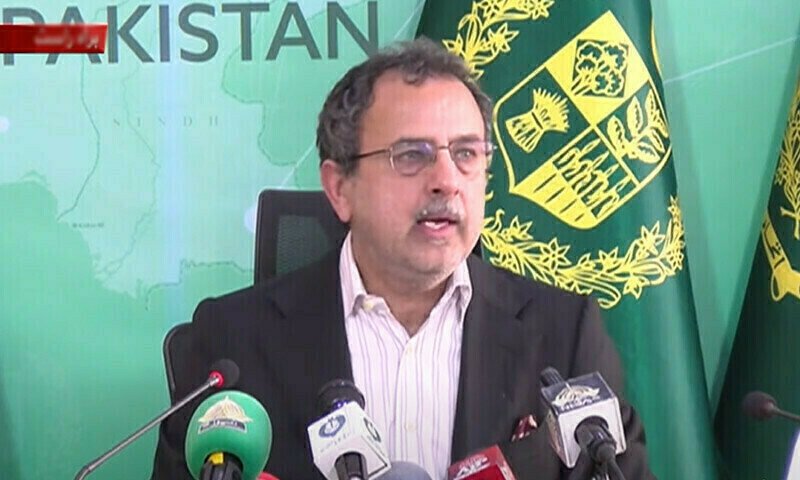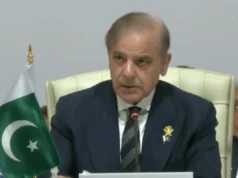ISLAMABAD – July 28, 2025:
Pakistan and the Kyrgyz Republic have reiterated their commitment to significantly increase bilateral trade, setting a new target of $100 million during the 5th session of the Pakistan-Kyrgyzstan Inter-Governmental Commission on Trade-Economic and Scientific-Technical Cooperation.
The session, held in Islamabad, was co-chaired by Pakistan’s Federal Minister for Energy, Sardar Awais Leghari, and Edil Baisalov, Deputy Chairman of the Cabinet of Ministers of Kyrgyzstan. Officials and delegates from both sides were present to review the state of bilateral ties and chart a roadmap for enhanced cooperation.
Despite long-standing relations rooted in shared cultural and historical values, trade between the two countries has seen a steep decline—from $11.2 million in 2022-23 to just $5.18 million in 2024-25. Acknowledging this dip, Minister Leghari emphasized the urgency of revitalising economic relations and expressed optimism about future prospects.
“There is a shared aspiration to strengthen our economic partnership. We aim to increase our bilateral trade volume to $100 million by fostering sectoral cooperation and removing barriers,” Leghari said.
Expanded Scope of Cooperation
The minister noted that over the years, bilateral cooperation has extended beyond trade and investment into areas like agriculture, energy, education, science and technology, and tourism.
He highlighted key developments, including:
- The revival of the Pakistan-Kyrgyz Joint Business Council
- Progress toward finalising an MoU on electronic data interchange between customs authorities
- The first meeting of the Joint Working Group on Trade and Investment
One of the cornerstone projects under discussion is the Pakistan-Kyrgyz Transit Trade Agreement, aimed at boosting regional connectivity and streamlining cross-border trade.
Investment and Logistics
Leghari drew attention to the recent MoU signed between the National Investments Agency of Kyrgyzstan and Pakistan’s Board of Investment. He identified high-potential sectors such as textiles, IT, pharmaceuticals, mining, and tourism as primary areas for collaboration.
He also appreciated Kyrgyzstan’s offer to allow Pakistan’s National Logistics Corporation (NLC) access to the At-Bashi Logistics Centre, calling it a strong example of operational cooperation.
To attract more private investment, the minister urged both countries to enhance the digital visibility of opportunities through updated information on Special Economic Zones, tax incentives, and target sectors.
Agriculture, Tourism, and Health Partnerships
Another MoU on agriculture has opened pathways for trading basmati rice from Pakistan and legumes from Kyrgyzstan, with improved veterinary and phytosanitary controls to ensure safety and efficiency.
Tourism cooperation also received attention, with both countries set to finalise an MoU covering hospitality, cultural exchange, and participation in global tourism exhibitions.
In the health sector, Kyrgyzpharmacia’s discussions with Pakistani pharmaceutical firms aim to increase the export of medicines and explore joint vaccine production. Minister Leghari stressed the importance of regulatory harmonisation to speed up the registration of Pakistani medicines in Kyrgyzstan.
Connectivity, Education, and Youth Engagement
Transport and communications were noted as key enablers of economic cooperation. Efforts are underway to implement the 1995 International Motor Transportation Agreement, enhance postal services, and improve e-commerce and air connectivity.
Leghari welcomed progress on inter-bank cooperation, especially in Islamic banking and financial innovation, referencing the recent agreement between the State Bank of Pakistan and the National Bank of the Kyrgyz Republic.
Education also remains a priority. The minister reaffirmed Pakistan’s commitment to support Kyrgyz students through the Pakistan Technical Assistance Programme (PTAP) and promote collaboration between universities on STEM education, academic exchanges, and research initiatives.
Youth engagement and cultural cooperation were also spotlighted, with calls for more institutional mechanisms to deepen ties, including joint cultural events and student exchanges.
A Vision for the Future
Concluding the session, Leghari emphasised the importance of transforming shared goals into tangible outcomes.
“Let us reaffirm our commitment to fostering a stronger, more resilient partnership built on mutual respect, economic collaboration, and regional stability,” he stated.
Both nations are also aligned in broader regional efforts through their membership in the Shanghai Cooperation Organisation (SCO), alongside other key regional players like China, Russia, and Iran.
In parallel diplomatic efforts, Pakistan has recently bolstered defence ties with Saudi Arabia and China, underlining Islamabad’s growing emphasis on strategic partnerships.



































